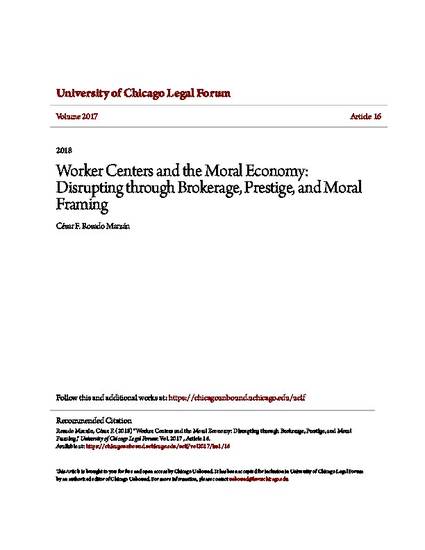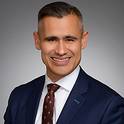
Article
Worker Centers and the Moral Economy: Disrupting through Brokerage, Prestige, and Moral Framing
University of Chicago Legal Forum
(2017)
Abstract
Social scientists have shown that labor unions helped to maintain economic inequality in check in the United States from about the 1950s until about the 1970s by, inter alia, using their once formidable resources to maintain a moral economy for labor. A moral economy is a package of social and legal norms that elicit moral condemnation when violated. With private sector union density rates at about 6% today, labor’s moral economy is now in the past; inequality has increased in the U.S. However, worker centers, one of the central “alt-labor” organizations filling the gap left by receding labor unions, are growing. Can worker centers help to rebuild labor’s moral economy and restrain economic inequality? This article reports evidence collected by the author through participant observation in a Chicago worker center, Arise Chicago, to answer whether or not, and how, worker centers can contribute to a new, labor moral economy. It argues that despite worker centers’ scant money and human capital, their social and symbolic capital, and their capacity to frame issues morally could enable them to contribute significantly to a new, labor moral economy.
Keywords
- labor law,
- labor unions,
- worker centers,
- moral economy,
- inequality,
- social capital,
- symbolic capital,
- framing
Disciplines
Publication Date
2017
Citation Information
César F. Rosado Marzán. "Worker Centers and the Moral Economy: Disrupting through Brokerage, Prestige, and Moral Framing" University of Chicago Legal Forum Vol. 2017 Iss. 16 (2017) p. 409 - 434 ISSN: 0892-5593 Available at: http://works.bepress.com/cesar_rosado_marzan/36/
